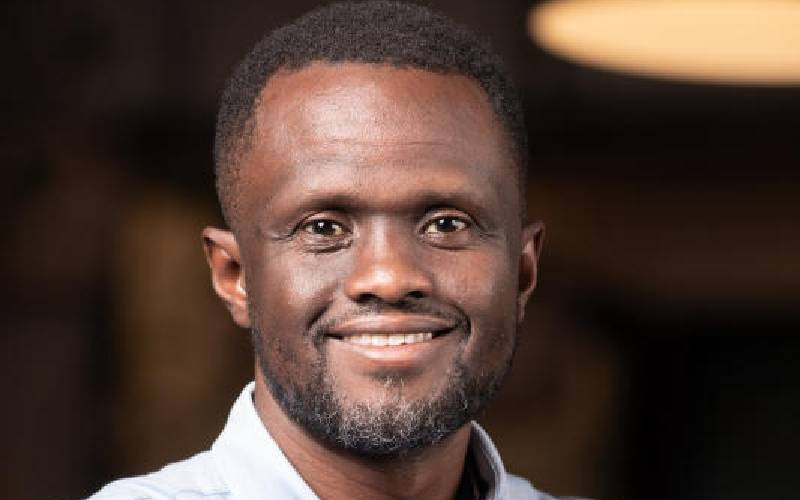
In our journey to secure a stable and sustainable energy future for Kenya, the government is actively exploring Public-Private Partnerships (PPPs) and Privately Initiated Proposals (PIPs) as appropriate strategies.
During the recent stakeholders' engagement on September 16, 2024, at the KAWI Complex, the Ministry of Energy and Petroleum seat, I had the opportunity to lay out this strategic vision before a broad spectrum of participants.
Our nation's energy sector faces myriad challenges, particularly the financing required to develop large-scale transmission projects. Traditional public funding is simply no longer feasible. This reality has pushed us towards embracing PPPs and PIPs to bridge the gap, to ensure that we continue to power Kenya's development sustainably.
PPPs provide a viable solution to the financing and operational challenges that have long plagued our energy sector. By involving the private sector in financing, constructing, and managing these projects, we can mitigate risks and ensure timely project delivery.
Public financing for these extensive projects is no longer tenable, and the pivot towards PPPs and PIPs is a strategic move to propel Kenya toward its energy and economic goals.
Through PPPs and PIPs, we are forging a path that involves collaboration between the government and private entities to finance, construct, and manage critical energy infrastructure projects.
Unlike traditional public procurement methods, PPPs shift a substantial portion of project risks to the private sector - whether it is financing, design, construction, or operational challenges. This model not only reduces the financial burden on the government but also drives private partners to deliver efficiently and effectively.
Under the PPP model, projects undergo rigorous screening and evaluation to ensure they deliver value for money. Section 40 of the Public-Private Partnership Act provides for Privately Initiated Proposals, allowing private entities to propose innovative infrastructure projects.
Such project proposals are evaluated meticulously to determine their feasibility and alignment with national priorities. By opening the door to innovative project designs and advanced technologies, PPPs and PIPs foster an environment that is conducive to economic growth and progress in the energy sector.
One of the most significant advantages of PPPs and PIPs is the transfer of risks from the public to the private sector. Financing risks, site acquisition challenges, design complexities, and construction delays - these are managed by private partners, freeing the government to concentrate on other critical areas such as food security and social services.
This risk-sharing model also ensures that private parties are incentivized to meet their deadlines and deliver high-quality services since their payments are directly tied to their performance. This results in more efficient execution of projects, reducing the delays often associated with public undertakings.
Engaging with established private industry players, with global footprints, is another advantage. These companies bring a wealth of experience and technical expertise to Kenya's power transmission sector. Their involvement introduces global best practices and innovative solutions to our energy landscape.
PPPs also ensure that public funds are utilized judiciously by leveraging private investment. Through meticulous screening and suitability tests, we ensure that only projects offering optimal value to the government and citizens are undertaken. Skilled transaction advisors guide the preparation and structuring of these partnerships, helping us navigate the complex landscape to secure the best outcomes for the nation.
Furthermore, PPPs are structured to guarantee accountability and quality. Payments to private partners are contingent on their performance, motivating them to maintain high standards in operations and maintenance. This translates into a more reliable power supply for consumers. In addition, local content provisions in PPP contracts ensure job creation and skill development for Kenyans, especially in project areas. This is not just about building infrastructure; it is about building a future where every Kenyan can benefit from the country's progress.
Our resolve to embrace PPPs and PIPs in power transmission is, therefore, a strategic response to evolving challenges and the urgency of our energy and economic goals. Access to clean, reliable, and sustainable energy is a critical enabler of industrial growth, improved living standards, and enhanced competitiveness on the global stage.
PPPs and PIPs represent a transformative approach to addressing Kenya's energy infrastructure challenges. By leveraging private sector investment and expertise, we can expedite the development of critical transmission projects, ensuring a stable and sustainable power supply.
This collaborative model offers a strategic pathway to achieving our vision of economic growth and energy security, setting the stage for a future where reliable, clean energy powers every corner of our great nation. I am confident that these partnerships will unlock the potential for innovative energy solutions, fostering a more resilient and prosperous Kenya.
In the end, our pursuit of PPPs and PIPs is about more than just infrastructure; it is about creating an energy-secure Kenya where every citizen has the power to thrive.
The writer is Cabinet Secretary, Ministry of Energy and Petroleum
 The Standard Group Plc is a multi-media organization with investments in media platforms spanning newspaper print
operations, television, radio broadcasting, digital and online services. The Standard Group is recognized as a
leading multi-media house in Kenya with a key influence in matters of national and international interest.
The Standard Group Plc is a multi-media organization with investments in media platforms spanning newspaper print
operations, television, radio broadcasting, digital and online services. The Standard Group is recognized as a
leading multi-media house in Kenya with a key influence in matters of national and international interest.











